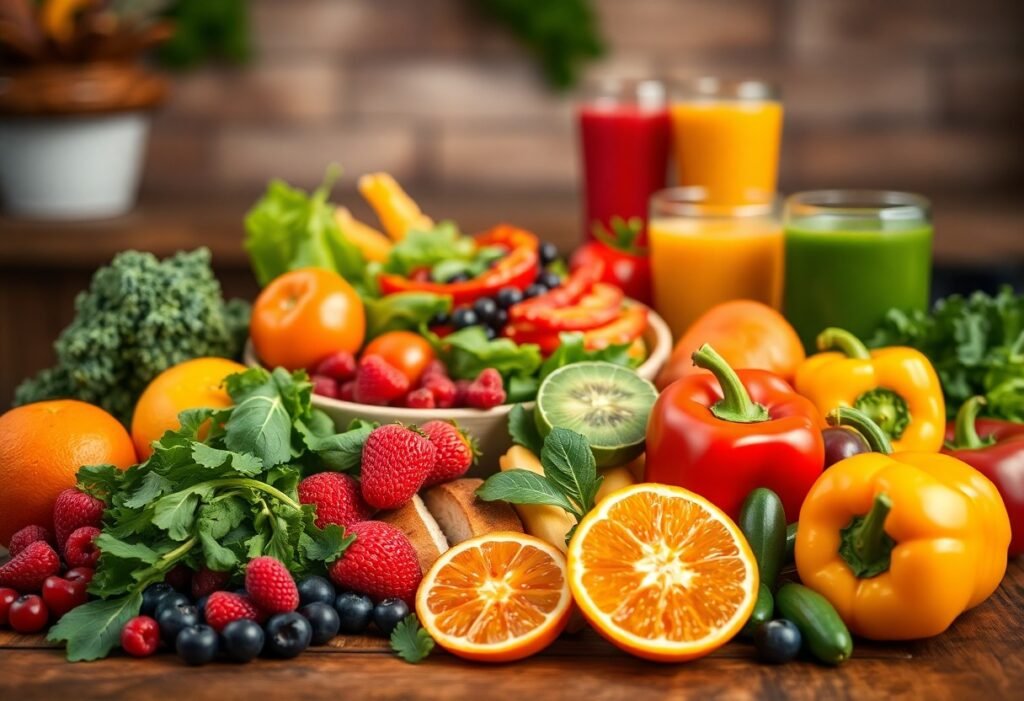
Intake of important vitamins is vital for maintaining your overall health and well-being. By making some simple adjustments to your diet, you can enhance your vitamin consumption and support your body’s various functions. Here is a comprehensive guide to help you increase your daily intake of vitamins through diet.
Firstly, start by incorporating a variety of colorful fruits and vegetables into your meals. Different colors often indicate different nutrient profiles; for example, oranges and yellows generally contain high levels of Vitamin C, while dark leafy greens are rich in Vitamins A, C, and K. Aim for a ‘rainbow plate’ during your meals—this not only makes your food visually appealing but also ensures a diverse range of vitamins.
Additionally, look for seasonal produce. Seasonal fruits and vegetables tend to be fresher, tastier, and packed with nutrients since they are harvested at their peak ripeness. Visit your local farmers’ market or look for grocery stores that prioritize local, in-season produce. You might discover new favorites that can easily boost your vitamin intake.
Incorporate whole grains into your diet as well. Foods like brown rice, quinoa, and whole-wheat bread are rich in B vitamins, which are important for energy metabolism and brain health. You can substitute white rice with brown rice or choose whole grain options for your bread and pasta. These small changes greatly enhance the nutritional value of your meals.
Consider adding nuts and seeds as snacks or toppings in your meals. Almonds, sunflower seeds, and chia seeds are not only excellent sources of healthy fats but also pack a punch of vitamins and minerals. Use them in your smoothies, salads, or as standalone snacks to easily incorporate them into your diet.
Include lean proteins such as fish, poultry, eggs, legumes, and dairy products. Fatty fish like salmon and mackerel are particularly high in Vitamin D and Omega-3 fatty acids. Eggs can provide Vitamins D and B12. Plant-based proteins like beans and lentils offer a wealth of B vitamins and fiber. Consider meal prepping to make it easier to include these nutritious options in your weekly meals.
When preparing your meals, consider cooking with herbs and spices. Many herbs like parsley, basil, and cilantro are rich in vitamins and can add flavor without additional calories. Spices such as turmeric and cinnamon also contain beneficial compounds that enhance nutrient absorption, giving your meals an added health boost.
Try to consume fortified foods. Some breakfast cereals, plant-based milks, and nutritional yeast are enriched with important vitamins. Check the labels and make informed choices to increase your intake of Vitamin B12, D, and other nutrients that you might find lacking in a conventional diet.
Finally, staying hydrated is equally important. Drinking adequate water helps in the absorption of vitamins and minerals, allowing your body to utilize them efficiently. Incorporate herbal teas or infused water with fruits or herbs to add a nutritious twist to your hydration routine.
By following these suggestions, you can easily enhance your daily intake of vitamins through a balanced and varied diet. Small, consistent changes can yield significant benefits for your health.
